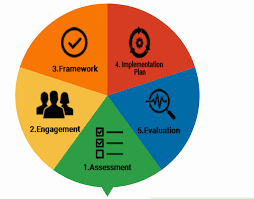Training course on Health Policy and Communicable Disease Control
Training Course on Health Policy and Communicable Disease Control is designed for health professionals, policymakers, and researchers interested in understanding the intersection of health policy and the management of communicable diseases.

Course Overview
Training Course on Health Policy and Communicable Disease Control
Training Course on Health Policy and Communicable Disease Control is designed for health professionals, policymakers, and researchers interested in understanding the intersection of health policy and the management of communicable diseases. This course explores the frameworks and strategies essential for effective disease control and prevention, emphasizing the role of policy in shaping public health outcomes. Participants will learn to develop and implement policies that enhance the effectiveness of communicable disease control programs.
In a world facing increasing challenges from infectious diseases, effective health policies are critical for protecting populations and ensuring equitable access to healthcare. This course equips participants with the knowledge and skills necessary to advocate for and implement effective health policies. Through interactive workshops, case studies, and practical exercises, attendees will gain hands-on experience in designing and evaluating health policies aimed at communicable disease control.
Course Objectives
- Understand the principles of health policy and its role in disease control.
- Identify key communicable diseases and their public health implications.
- Analyze the impact of health policies on disease prevention and control.
- Develop policies that promote effective communicable disease management.
- Evaluate the effectiveness of existing health policies.
- Engage stakeholders in the policymaking process.
- Advocate for policies that address health disparities and access to care.
- Explore case studies of successful disease control policies.
- Collaborate with interdisciplinary teams for policy development.
- Prepare for emerging communicable disease threats.
- Utilize data and technology for informed policy decision-making.
- Assess the role of international health regulations in disease control.
- Promote public awareness and education in health policy.
Target Audience
- Public health professionals
- Policymakers
- Epidemiologists
- Healthcare providers
- Community health workers
- Medical students
- Health program managers
- Researchers
Course Duration: 10 Days
Course Modules
Module 1: Introduction to Health Policy
- Overview of health policy concepts and frameworks.
- Historical context of health policy development.
- Key terms and definitions in health policy.
- Current trends and challenges in health policy.
- The role of health policy in public health.
Module 2: Communicable Diseases and Public Health
- Identifying key communicable diseases (e.g., HIV/AIDS, tuberculosis, influenza).
- Understanding the epidemiology of communicable diseases.
- Analyzing the public health impact of communicable diseases.
- Surveillance and monitoring of disease trends.
- Case studies of notable disease outbreaks.
Module 3: Policy Development and Implementation
- Steps in the policy development process.
- Engaging stakeholders in policy formulation.
- Developing evidence-based policies for disease control.
- Strategies for effective policy implementation.
- Evaluating policy impact and outcomes.
Module 4: Health Disparities and Access to Care
- Understanding health disparities related to communicable diseases.
- Analyzing the social determinants of health.
- Developing policies to promote health equity.
- Strategies for improving access to healthcare services.
- Case studies on addressing health disparities.
Module 5: Advocacy and Stakeholder Engagement
- Importance of advocacy in health policy.
- Strategies for effective stakeholder engagement.
- Building coalitions for policy change.
- Communicating effectively with policymakers and the public.
- Evaluating advocacy efforts and outcomes.
Module 6: International Health Regulations
- Overview of international health regulations and agreements.
- Understanding the role of WHO in disease control.
- Analyzing the impact of global health policies on local practices.
- Strategies for collaborating with international health organizations.
- Case studies on global health initiatives.
Module 7: Data-Driven Decision Making
- Utilizing data for informed policy decisions.
- Methods for collecting and analyzing health data.
- Integrating technology in health policy development.
- Case studies on data-driven health policies.
- Evaluating the effectiveness of data use in policymaking.
Module 8: Future Directions in Health Policy and Disease Control
- Emerging trends in health policy and disease management.
- Preparing for future communicable disease threats.
- Innovations in health policy and practice.
- Global perspectives on health policy development.
- Building resilience in health systems.